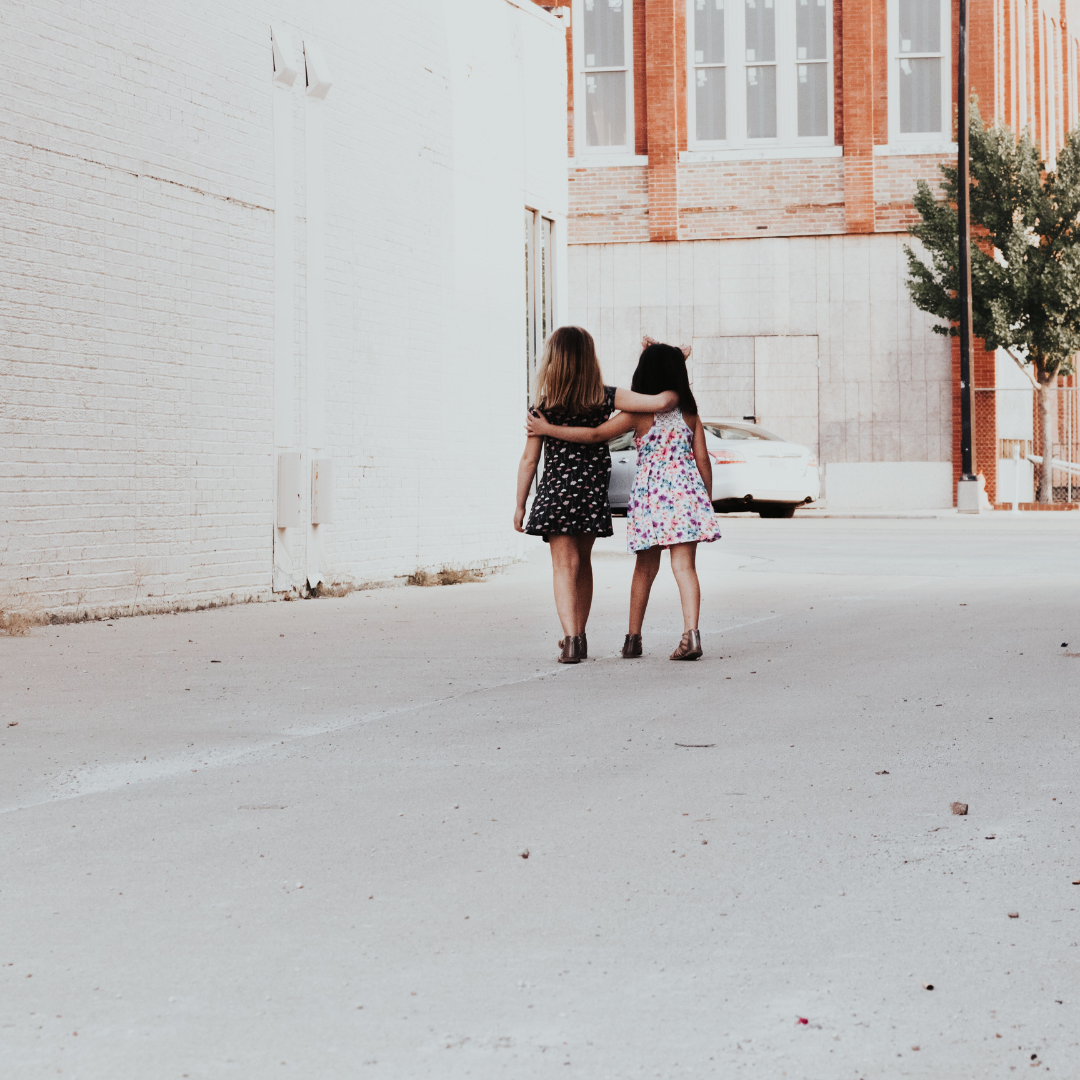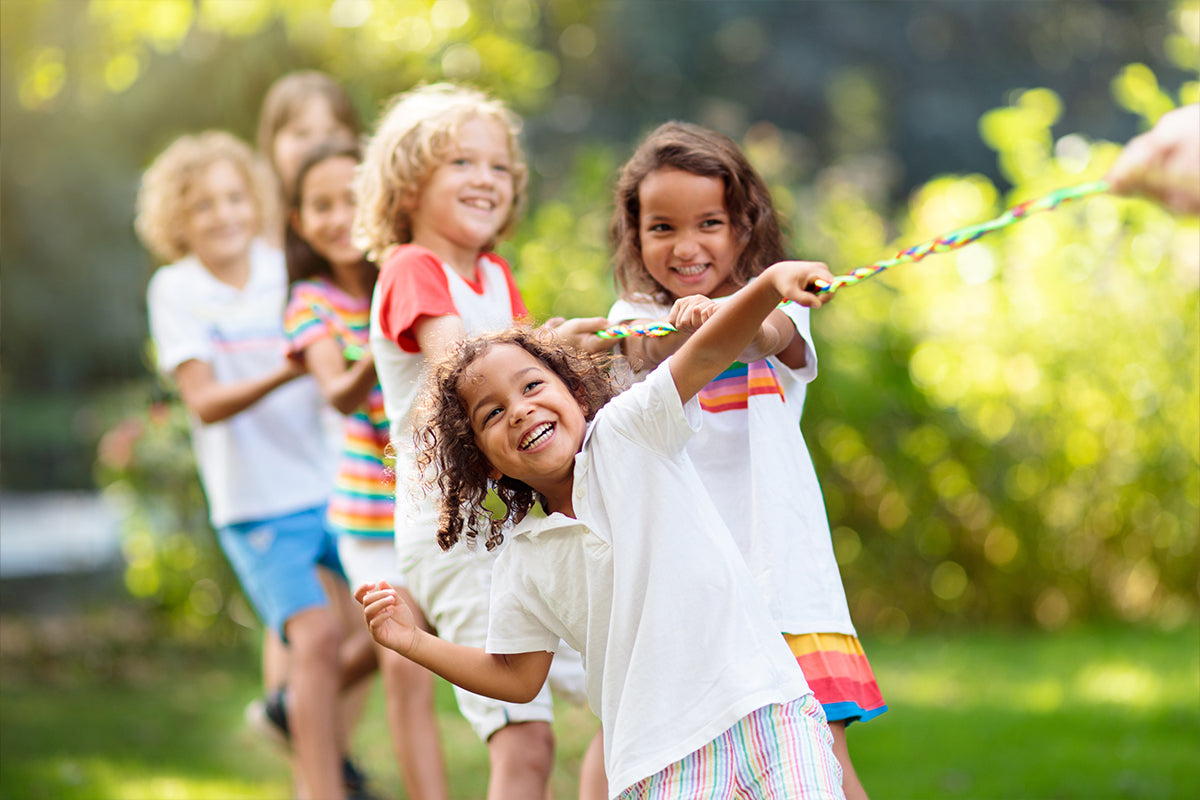5 ways to help teach your baba to be kind

One of the best ways to help make the world a better place is to create a kind environment at home for your baba! When you think about instilling kindness in your baba what do you mean by kindness? Compassion, generosity, empathy, justice and alleviating suffering may all come to mind – all of which involve an underlying consideration for others, rather than acting only out of self-interest, which makes sense because kindness is one of the most fundamental expressions of what it means to be human.
For our littlest ones, this might mean patting the back of a worried friend, waving to an elderly neighbour, or breaking a cookie in half to share with a younger sibling. For older children, kindness might be inviting a lonely classmate to join their lunch table, comforting someone who's sad or scared, or donating some of their pocket money to a cause they care about.
Today is National Kindness Day, so we have compiled some of our top tips to help you instil kindness in your little one…
1. Help them understand what kindness means
Even before your child is old enough to act kindly, you can start talking about it. Empathy is hardwired in us from birth, as we intuitively feel what others feel, which is why your 2-year-old may burst into tears when they see another toddler fall at the playground – providing the a perfect opportunity to articulate that experience – “You feel sad because you care about your friend and they hurt themself.”
If empathy is understanding, then compassion is acting on that understanding and this ability develops a little bit later as they become better at separating you from I. Toddlers are very focused on me and mine, but you can gradually help your child think about we and us by using more inclusive language yourself – for example you may ask “What can we do today that will be fun for all of us?”
2. Inspire their imagination
Thinking “What would that feel like?” is one of the most powerful habits we can instil in our children, as you can't be a compassionate person unless you have an active imagination, as you have to be able to put yourself in the other person’s shoes.
Pretend play is a great way to practice empathy, as you could ask your child, “Your toy fell down and bumped its head, what do you think we should do for it?” As they get older, you can ask them to imagine more complicated real-life scenarios as you encounter them. “I wonder what it would be like to sleep outside when its cold? Imagine being a kitten that was stuck up in a tree and wasn't able to climb down. Imagine how hard it must be to get on the bus in a wheelchair – and how grateful you would feel that a smart engineer invented the lift to make that possible.”
These are all good questions to ask them to think about as, over time, this type of thinking becomes automatic, and so does a child's response to it.
3. Model kindness everywhere you go
When it comes to raising thoughtful children, this is one of the most important things we can do. We can't control their behaviour, but we can look for ways to demonstrate kind behaviour ourselves and, fortunately, children are eager to copy us from a young age, so you can model kindness from the time they're babies.
Kindness also means giving your children, especially when there are siblings in the mix, a feeling of abundance – that there is enough love, praise, laughter, and attention to go around.
4. Encourage kind habits
Help your children match the somewhat abstract concept of kindness with the many concrete verbs that enact it: sharing, volunteering, giving, including, comforting, supporting, championing, compromising, listening, and noticing when someone could use help. These habits intersect with etiquette, since gracious actions like saying “please” and “thank you” also help cultivate kindness and make the world a happier place.
5. Understand that kindness isn’t always easy
We should remind ourselves and our children that kindness can be hard sometimes, as it doesn't always flow out of you naturally – but that doesn't mean that you're not kind. It can be challenging to be generous with a sibling who's annoying you, it can be scary to stick up for a friend or a classmate who isn't being treated right.
All we can do is gently coach our children to remember how other people might be feeling – and the more that your child gets in the habit of behaving kindly, the more natural it will become.



